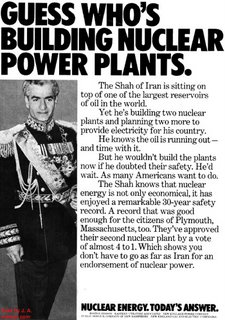By any other name
Tonight's Channel 4 news lapsed into Newspeak once again in a report on the killing of women and children by coalition forces in Iraq.
It is over two years now since the full extent of the torture in Abu Ghraib was revealed. And following the recent revelations of US executions of civilians, the reporters could not make this connection more obvious. As if 'scandalous' war crimes have not been committed since then. As if these incidents exist in isolation.
The BBC on the story: "reports from Iraqi witnesses and in the US media allege that marines went on a rampage. According to the Wall St Journal, there is evidence that marines killed civilians, including women and children, without provocation.
Several marines are likely to be charged with murder and others with attempting to cover up the incident, the newspaper said, quoting civilian and military officials close to the investigations."
Channel 4: "scandal could be worse than Abu Ghraib"
Parallels with Abu Ghraib were obviously going to be drawn, given that only a tiny number of attacks on civilian areas are even questioned. But was it not a pertinent opportunity to mention Abu Sifa or Fallujah?
In March this year, near Balad, the Iraqi police reported the following:
“American forces used helicopters to drop troops on the house of Faiz Harat Khalaf situated in the Abu Sifa village of the Ishaqi district. The American forces gathered the family members in one room and executed 11 people, including five children, four women and two men, then they bombed the house, burned three vehicles and killed their animals.”
In November 2004 The Daily Mirror’s political editor, Paul Gilfeather filed a report stating: “US troops are secretly using outlawed napalm gas to wipe out remaining insurgents in and around Fallujah. News that President George W. Bush has sanctioned the use of napalm, a deadly cocktail of polystyrene and jet fuel banned by the United Nations in 1980, will stun governments around the world.”
Reporter Dahr Jamail's website hosts photographs displaying the reality of this crime that belie the importance the media attaches to it. It seems massacres in the guise of military operations do not warrant the same, or any, attention.
But here too women and children were killed, indiscriminate use of force was again the mainstay and here again the full extent of the crimes committed were hidden from the public for as long as possible.
The report also gave a hefty slot to a spokesperson for the Brooking Institute who repeatedly described the event as a +tragedy+. A Massacre yes, slaughter yes, execution probably, a bloodbath maybe, a tragedy of course, but this in some way intimates it was some kind of accident, something unavoidable. There is little doubt this incident was pre-meditated murder.
This pacification of language is I presume not just a pandering to government listeners but also a crass attempt at impartiality. But the most extraordinary aspect of the report was the Channel 4 correspondent, Keme Nzerem, reference to the massacre as:
"the most damaging report of +abuse+ since the Iraq war began"
'Abuse', surely this is the wrong word to describe the murder of women and children.
Could a bullet to the head really be described as "cruel or inhumane treatment"?
I wrote to Jon Snow, following a Media Lens Alert in 2004, with regards to a similar softening of tone:
"Mr. Snow,
In reference to your description of the the torture techniques used by the US soldiers that has come to light in the last few days, do you think it fair/just to label their actions merely as 'sordid japes'. Consider the actions as if they were perpetrated against you/or a member of your family and then try to describe them as a jape of any nature. The hint of triviality with which you impart onto these crimes (see Geneva convention: Articles 3(a), 17, 87, 130) only contributes to the dehumanising of the Iraqi people.
This careless (as I hope this doesn't represent your true feelings concerning these events, considering that I have regarded your reporting in the past as unbiased) description becomes yet another brick in the wall (constructed in part by the media) creating a distinction between Iraqi people and 'Westerners'. As a person in a position of relative power perhaps more thoughtfulness is required, even in times of 'war'. Thank you for your time."
I attached a BBC report highlighting the immoral use of 'polished' language to describe Western crimes against Arab people. When even reports of animal abuse utilise terms like "abject cruelty" and point out obvious facts like "They suffered immense cruelty before they died."
This shocking divergence between how brutality against specific peoples and against animals is reported shows a lack of regard for human life.
Fortunately Mr. Snow replied:
"Clearly a disgraceful lapse, we shall ensure that snowmail is thoroughly vetted before it goes out..however in mitigation you can see that certainly the female US operative thinks it is some kind of a 'sordid jape' laughing as she points her fingers in a gunlike gesture..but this was an outrageous failure on my part and will not be repeated. best wishes, jon snow"
A disgraceful lapse that has unfortunately been repeated.
Watch the full report here: Channel 4
This post is also available at Indymedia.ie

